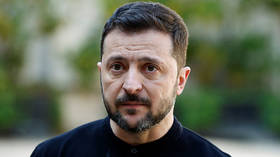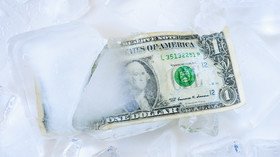Guardian challenged over ‘fake’ Assange & Manafort story, as Luke Harding goes AWOL
Leading journalists have called out the Guardian for not retracting their story that claimed Wikileaks’ Julian Assange met with ex-Donald Trump operative Paul Manafort despite a lack of evidence to support the claims.
Led by ex-Guardian writer, now co-editor at the Intercept, Glenn Greenwald, various journalists and activists attacked the publication for going silent on the ‘bombshell’ story, while at the same time hailing that they are Britain’s most trusted news outlet.
Happy 3-week anniversary to this blockbuster @Guardian story!* No media outlet has confirmed it.* No photo/video evidence has emerged.* Ex-embassy official called the story "fake."* Guardian refuses to talk about or retract it.Why do people not trust media outlets?? https://t.co/RUJgKYYS4V
— Glenn Greenwald (@ggreenwald) December 18, 2018
Guardian reporters Luke Harding and Dan Collyns co-authored this bogus story with opposition activist Fernando Villavicencio, who has close ties to the US and who Ecuador said previously doctored a document that was irresponsibly published by The Guardianhttps://t.co/vcbf8j0sT2
— Ben Norton (@BenjaminNorton) December 18, 2018
Three weeks since @guardian killed its reputation with Manafort-met-Assange fabrication. It has neither retracted nor tried to defend the story. No word from the journalists nor the editor @KathViner. Don´t think I've experienced anything as pathetic in my 30 yrs as a journalist.
— Kristinn Hrafnsson (@khrafnsson) December 18, 2018
Others queried as to the whereabouts of one of the article’s authors, Luke Harding – the Guardian’s former Moscow correspondent. Some wondered whether Harding, a constant critic of the Russian state, had been placed on “gardening leave” following the publication of his ‘exclusive.’
Where’s the @guardian’s Luke Harding?He hasn’t published a story for three weeks. Has he been put on gardening leave after the fabricated frontpage Assange-Manafort story?#fakenews#boycotttheguardianhttps://t.co/VQxFAIrTKo
— Matt Kennard (@KennardMatt) December 18, 2018
Greenwald, whose work with Edward Snowden lead to the Guardian receiving their only Pulitzer Prize, was supported by Media Lens, an analysis website that frequently calls out the liberal publication for it's pro-business biases, and historian Mark Curtis, among others.
Curtis also highlighted a tweet from Paul Johnson, the paper’s deputy editor, which cited an industry study that concluded that the Guardian was “the most trusted newspaper in Britain,” indicative of the state of the UK’s press.
Guardian most trusted newspaper in Britain-And most read quality news outlet-And most popular news outlet among younger people https://t.co/qdBgh9M6zG
— Paul Johnson (@paul__johnson) December 17, 2018
On November 27, the Guardian splashed with an eye-catching article, claiming that its journalists had seen an Ecuadorian intelligence agency document detailing that Manafort and Assange had met three times in the London Ecuadorian embassy, including during the run-up to the 2016 US Presidential Election.
The piece suggested that “Russians” were also guests at the embassy, though it failed to identify any individuals in question. The article also didn’t include any non-anonymous sources nor did it reproduce, in any capacity, the document in question. No police force or intelligence service has corroborated the story despite the Ecuadorian embassy being one of the most surveilled spots in London.
Think your friends would be interested? Share this story!
Subscribe to RT newsletter to get stories the mainstream media won’t tell you.















